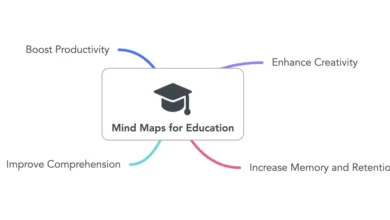The power of repetition is an invaluable tool for unlocking exponential learning in students. Through the use of consistent and well-structured practice, students can reinforce their knowledge and develop a more robust understanding of a subject.
This can help them become more efficient learners who are better equipped to engage with various forms of content. Repetition also provides an opportunity for educators to identify areas where additional instruction may be needed, allowing them to tailor their approach accordingly.
As such, teachers must recognize the importance of incorporating this technique into their lesson plans as they prepare students for long-term success.
Understanding the Benefits of Repetition in Education
When it comes to unlocking exponential learning for students, repetition is the key. Repetition has been used in education for centuries as a way to help students learn and remember important concepts and skills.
But what are the specific benefits of repetition? Understanding these benefits can help teachers maximize their effectiveness when teaching new material. One benefit of repetition is that it helps to strengthen memories over time.
Through repeated exposure, ideas become more firmly entrenched in our minds so they can be retrieved more easily later on. This allows us to process information faster and have better recall when we need it most—during tests or exams! Another advantage of repetition is that it encourages a deeper understanding of concepts by providing multiple opportunities for practice and reflection.
When students are given the chance to revisit material multiple times, they’re able to gain greater insight into how things work and why certain processes occur the way they do. This type of understanding leads to higher retention rates because students don’t simply memorize facts but truly internalize them instead.
Finally, repeating content engages learners who may struggle with traditional methods such as lectures or reading assignments alone; this makes learning more accessible for all types of learners regardless of their ability level or background knowledge about a topic area. By breaking up complex topics into smaller chunks and revisiting them several times throughout the course, everyone has an equal opportunity at grasping challenging concepts without feeling overwhelmed or discouraged along the way!
Developing Students Exponential Learning Potential

Developing a student’s exponential learning potential is an important part of education. To unlock this potential, repetition plays an essential role in the development process.
With consistent practice and review, students can build up their knowledge base and gain a deeper understanding of concepts. This can be done through various methods such as quizzes, homework assignments, or independent studying.
By constantly revisiting topics that have already been covered in class, students will begin to form connections between different ideas and develop their unique approach to problem-solving. Furthermore, by repeating lessons over time students are more likely to retain information for longer periods allowing them to apply what they have learned in various scenarios throughout their academic career.
Ultimately unlocking their full learning potential and setting themselves up for success both now and later on down the line.
Exploring Strategies to Promote Repetitious Study Techniques
Repetition is a powerful learning technique that can unlock exponential progress in student performance. It’s an effective way to build better recall and comprehension of information, as well as reinforce key skills and knowledge.
However, motivating students to engage with repetitious study techniques can often be difficult. This article explores different strategies that teachers and parents alike can use to help promote the benefits of repetition for their students or children.
One approach is to provide rewards for the successful completion of repeated tasks – this could involve simple verbal praise or tangible incentives such as certificates or treats. Making it clear there are positive outcomes from engaging in repetitious activities, will create an air of excitement and intrigue around them which makes them more attractive to learners.
Furthermore, breaking down large goals into smaller chunks provides greater clarity on what needs to be achieved within each task – this encourages focus while also helping learners feel like they’re making consistent progress toward larger objectives. Another strategy involves using meaningful stories alongside repetition exercises; research suggests that people remember concepts better when they have been associated with a story rather than being presented without context (Bower 1974).
For example, introducing new vocabulary by creating a short narrative around it helps cement its understanding in learners’ minds more effectively than presenting isolated words alone might do (Preschool Today 2008). Additionally, incorporating fun elements into repetitive tasks also promotes engagement levels – whether through games-based activities or simply tracking progress over time using data visualization tools such as graphs or charts (Kapp & OConnor 2017).
Ultimately all these strategies combine to form an effective teaching approach focused on the power of repetition; one that empowers students with confidence whilst boosting their overall performance levels at the same time.
Making Meaningful Connections Through Recurring Knowledge Acquisition

Repetition of knowledge is one of the most effective ways to learn. When students take the time to revisit a concept or idea multiple times, it helps them make meaningful connections and better understand what they are learning.
Through recurring knowledge acquisition, students can build on their understanding by testing themselves repeatedly and honing in on areas that need further focus. This type of active engagement not only results in more excellent learning outcomes but also allows for more creative exploration as students go deeper into their studies.
By making use of repetition, educators can empower learners with the skills needed to become successful lifelong learners who have an expansive base of knowledge upon which they can draw at any time.
Conclusion
Repetition is an incredibly powerful tool for learning, and its use in educational settings can produce exponential returns. Gizmo has developed a platform that leverages the power of repetition to help students unlock their full potential. With Gizmos tools, teachers and administrators have access to an array of data-driven methods to ensure students are mastering the material they need to succeed in school and beyond.
By capitalizing on repetition as a teaching method, we can equip our students with the knowledge they need to excel in today’s ever-evolving world.






